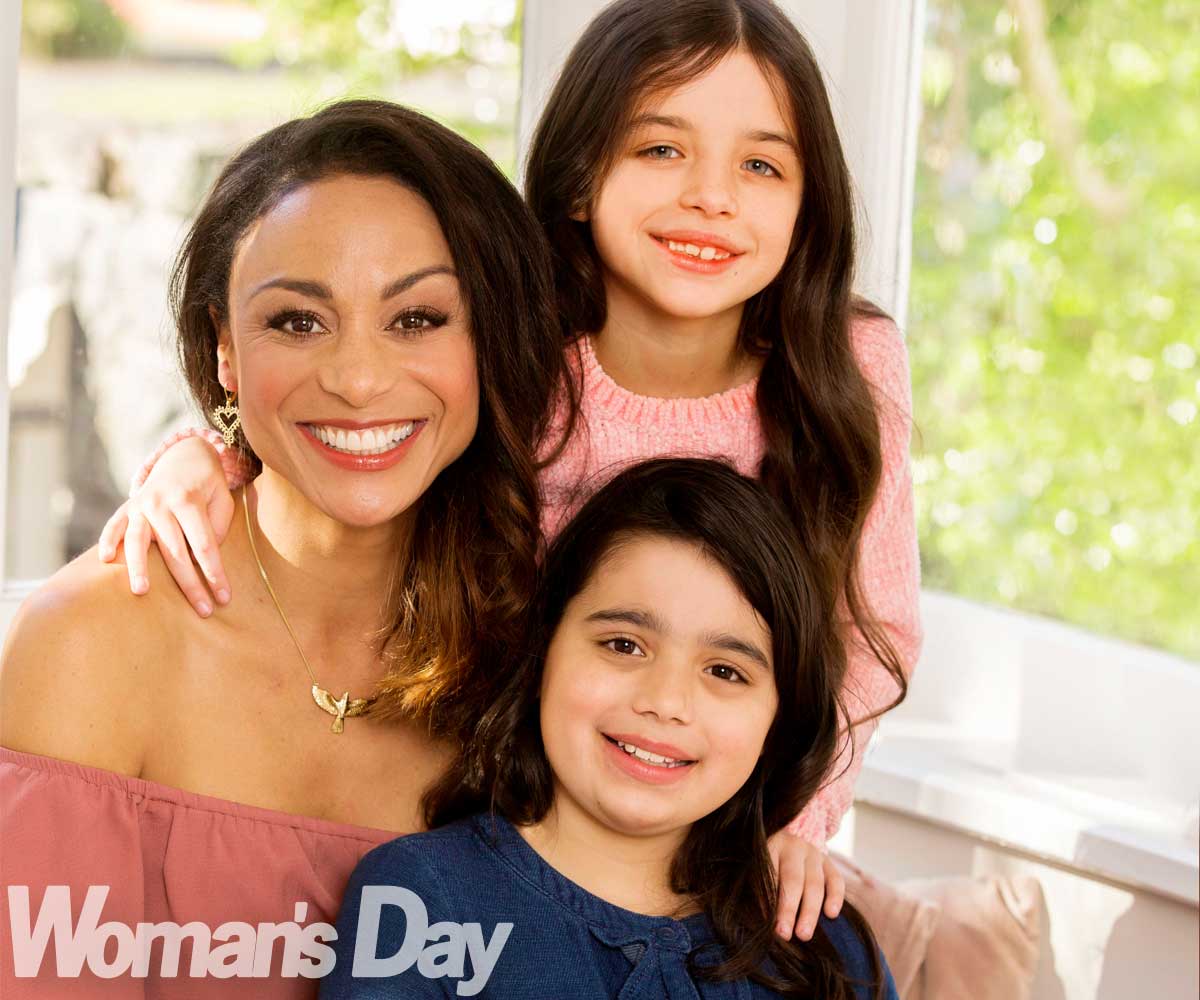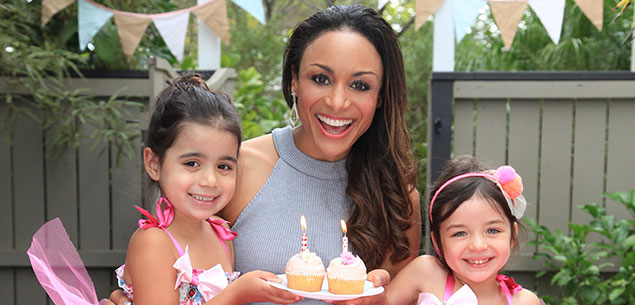It was a Friday morning in 2017 when I got the call to say my seven-year-old daughter Inez went missing. She was at a school for gifted kids one day a week, a school that – unlike her regular primary school – wasn’t gated to keep kids from running away. On that morning, she left class to go to the toilet and never returned.
By the time I arrived, a police helicopter had gone up and was circling the area. A call came through to ‘search the waterways’. I felt like I had been dropped into an episode of CSI – and we all know how those shows end.
Nezzie was finally found, at a house three kilometres away. My little seven-year-old had walked and walked and realised she was lost in the back of Mt Roskill, so she asked a passer by for help. But the woman didn’t speak English. So she took her back to her house, where her husband called the school. When we arrived in the police car to collect Nezzie, she was busy entertaining this beautiful Chinese couple and their extended family.
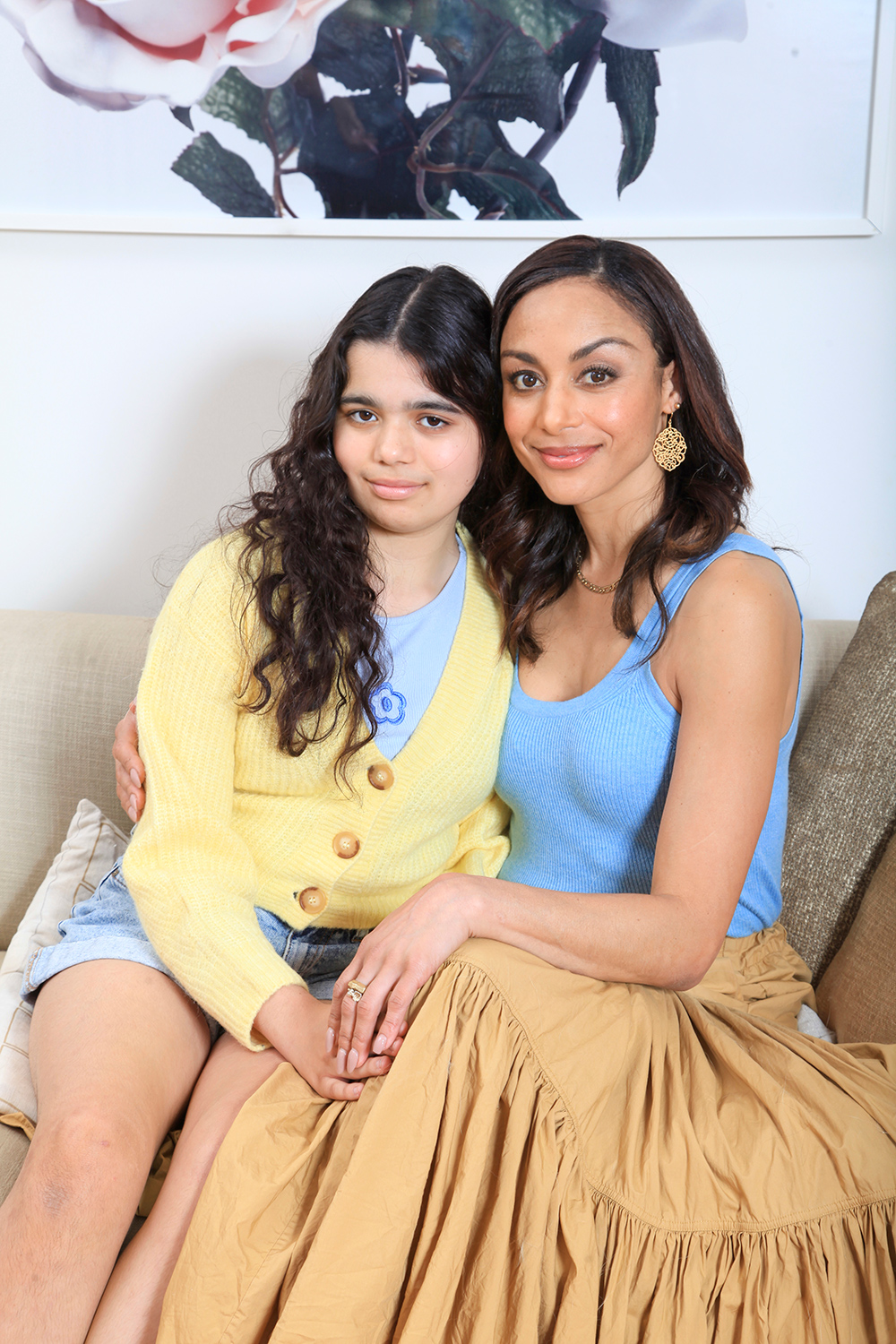
It sounds like every parent’s worst nightmare and, yes, it was terrifying. But there was also the hope that now, after years of us struggling alone with a daughter in crisis, someone else would finally step in and take control. A team of experts would swoop in with a sense of urgency and an action plan. They would sit me down and say, ‘This is bigger than you – we’ll take it from here.’
But nothing. We were sent on our way with advice from the cop to maybe think about getting a GPS tracking device implanted into our daughter.
The fact is, neurodivergent kids, particularly those who are autistic or ADHDers, run away all the time. It is a nightmare for parents, but police get these call-outs on a daily basis. They find the child and pass them back. For us at least, there was no referral, no follow-up and definitely no action plan. This was my rock-bottom moment – not because Inez had gone missing, but because despite her going missing, we were still on our own. And I really had no idea if we could survive.
The lead-up to that day had not been pretty – Inez was responsible for 11 incidences of violence in one school term. She’d torn a classroom apart, kicked the school principal, and attacked numerous teachers and students. She’d pulled a knife on her grandmother, tagged our house and tried several times to jump out of the moving car on the motorway.
The day Inez tore through the international terminal and spat on the feet of a customs officer, I knew she’d given up trying to be good and was, essentially, giving the world the middle finger.
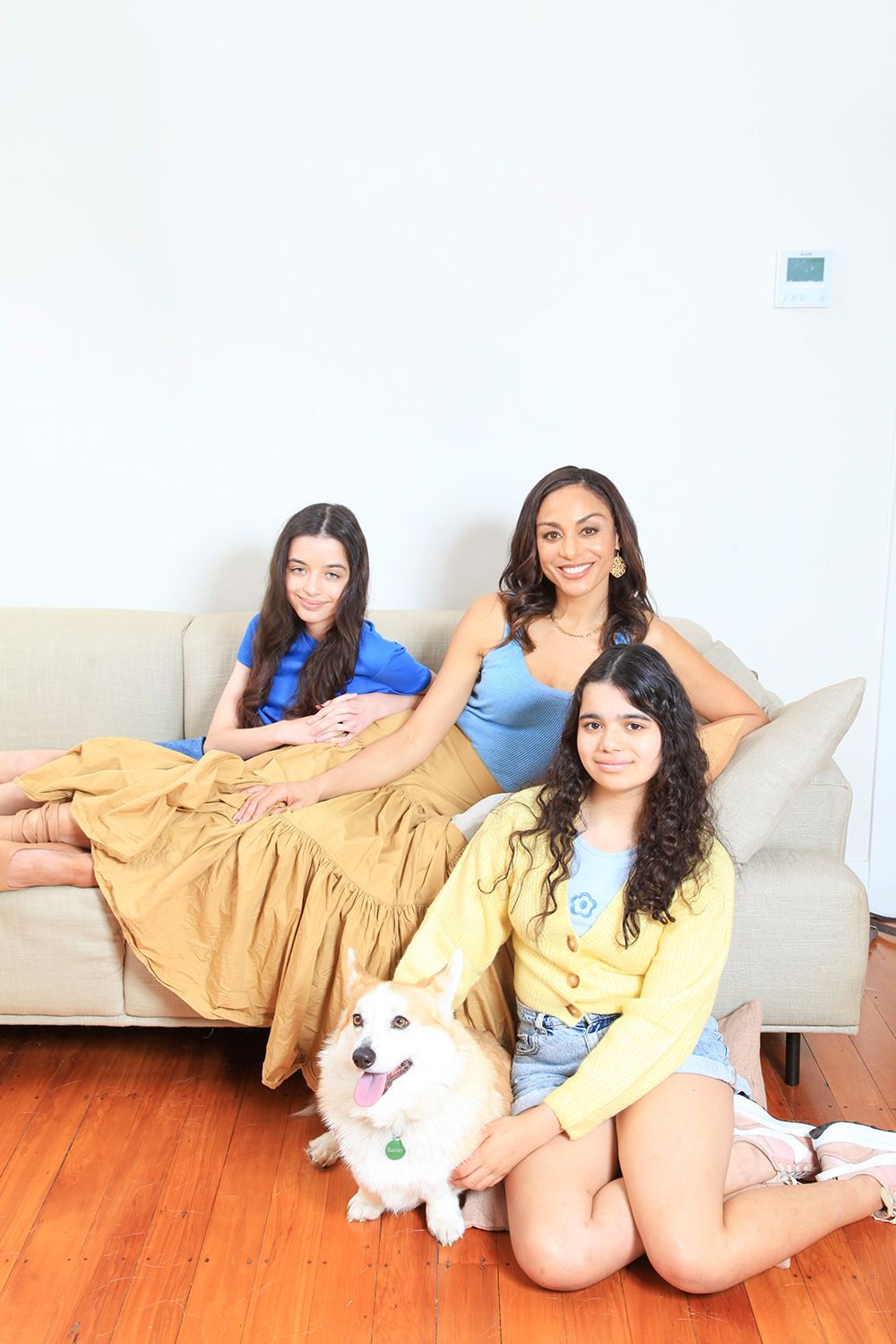
Sonia with twin daughters Thandie (left) and Inez, and family dog Baxter.
Despite what it looks like, my daughter is not a bad kid. She is a kid with an exceptional mind who struggles with many things the rest of us take for granted. The world for her is too bright, too tight, too loud and too unpredictable, and when she’s overwhelmed, she goes into fight, flight or freeze.
The list of letters after her name is long: SPD, ADHD, DCD, ASD, dyslexia, OCD and the unfortunately named ODD, which stands for oppositional defiant disorder. The ODD kid is the one whose frustration and anxiety are expressed as violence.
Approximately 25% of kids go on to develop something called conduct disorder and half of those kids end up in jail.
Of course, none of these diagnoses come close to defining who Inez is. When she’s calm and feeling safe, she is a funny, caring, loyal girl who loves to read and adores her friends, her pets and her twin sister.
When Inez was eight, I finally met another mother in the same situation. Rachel’s son Theo was the same age and had many of the same struggles as Inez. Theo is a beautiful, big-brained, big-hearted child who struggles to regulate his emotions. He’d been stood down from school numerous times when we met and was finally excluded.
Rachel and I, along with her husband Nathan King, lead singer of Zed, formed an instant bond. We talked about our fears for our kids – in particular that they seemed to be on a road to prison. We both recognised that anxiety was at the root of our kids’ suffering and that while they wanted to comply with the demands of society, their bodies literally wouldn’t allow them, especially when those demands were on other people’s terms and timelines.
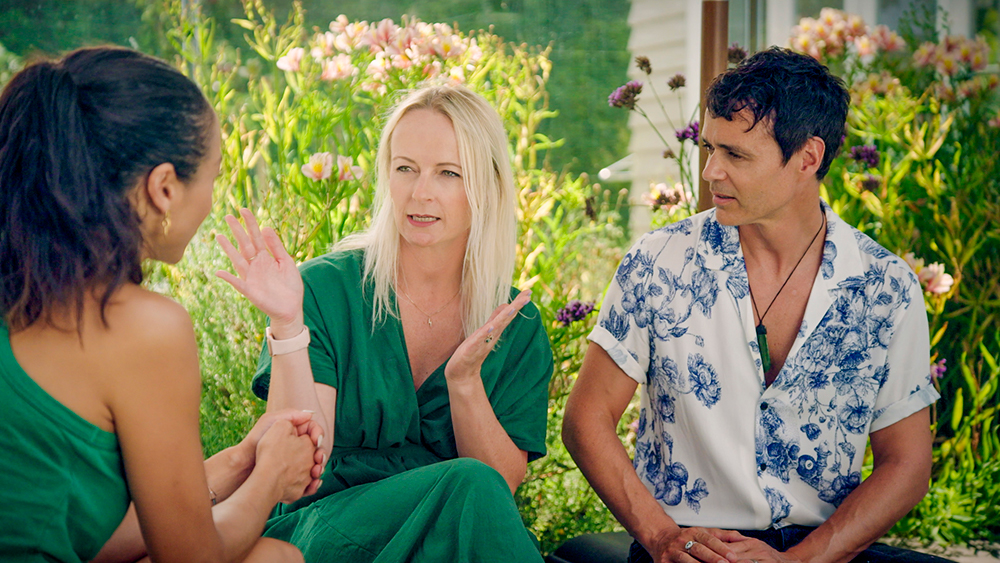
In Kids Wired Differently, Sonia talks to friends Rachel and Nathan
about their battles.
There are so many families in Aotearoa who are in crisis like mine and Rachel’s. We are at the pointy end of the spectrum, but there are thousands of kids – both with and without official diagnoses – who have become experts at masking, camouflaging or controlling their symptoms in order to fit in. And while their compliance makes it easier on society in the short term, the effects on their mental health are huge and society feels those effects eventually.
At least 50% of prison inmates are thought to have dyslexia. Autistic people are nine times more likely to attempt suicide and 25% of women with ADHD have attempted suicide. Children on the neurodiverse spectrum are seven times more likely to be excluded from school than their neurotypical peers.
These statistics are grim, but there are so many positives that are often overlooked. Neurodivergent people are the visionaries, explorers, inventors, pathfinders and original thinkers. More than half of the world’s leading entrepreneurs are on the neurodiverse spectrum. And they are big-hearted, trusting, generous and fun.
But when these kids have struggled to navigate the world from an early age, and have been shamed, belittled, told they are weird and believe they are ‘lesser-than’, it is easy for their bright light to be extinguished.
Inez is now 13 and is doing so much better in so many ways. But as is often the case, as some things improve, new challenges arise. In an effort to control her world, Inez now struggles with OCD, which is having a huge effect on her life.
Her daily routines are complex and inflexible, and they take hours to complete. But there are so many positives. Inez has developed strong and supportive friendships, and is no longer violent at home or at school. I can see she feels a sense of belonging and acceptance, which is key to any kid flourishing.
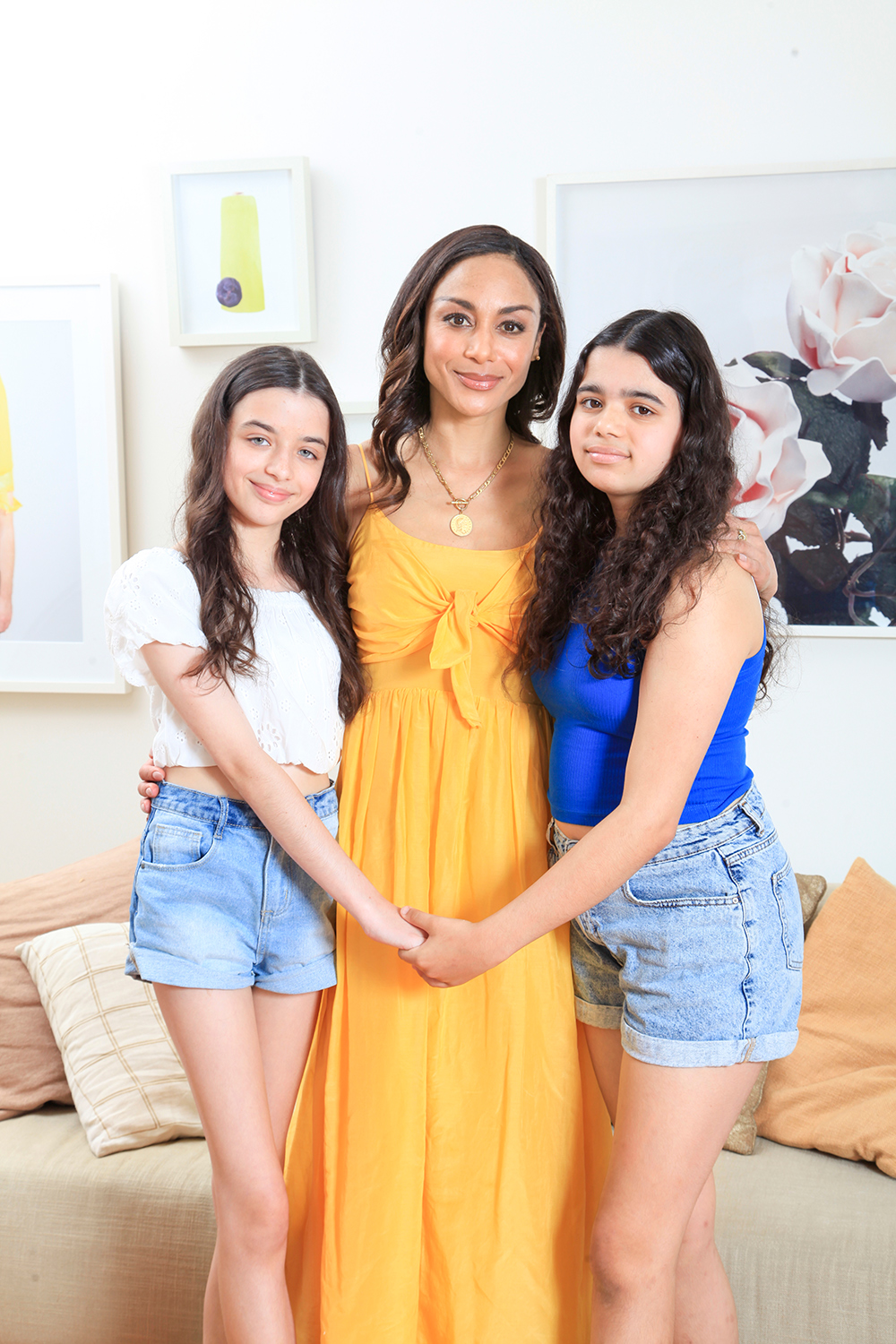
Despite the family upheavals, the devoted mum says the twins are close.
Unless you find yourself in this situation, it is almost impossible to understand the immensity of the struggle, and the huge and lasting effects it has on the whole family. In my new show Kids Wired Differently, we shine a light on neurodiversity in New Zealand and give an insight into what life is like for families like ours.
When Rachel first told Theo about the documentary and how it might help other kids like him, he said, ‘People think they know ADHD, but they have no idea what it’s like inside my head.’
And we don’t. But as a society, I feel we need to make more of an effort to try to understand. And to truly accept these kids as they are, regardless of whether they can play by the rules.”
Kids Wired Differently airs 8.40pm on Tuesday 4 October on TVNZ 1.

